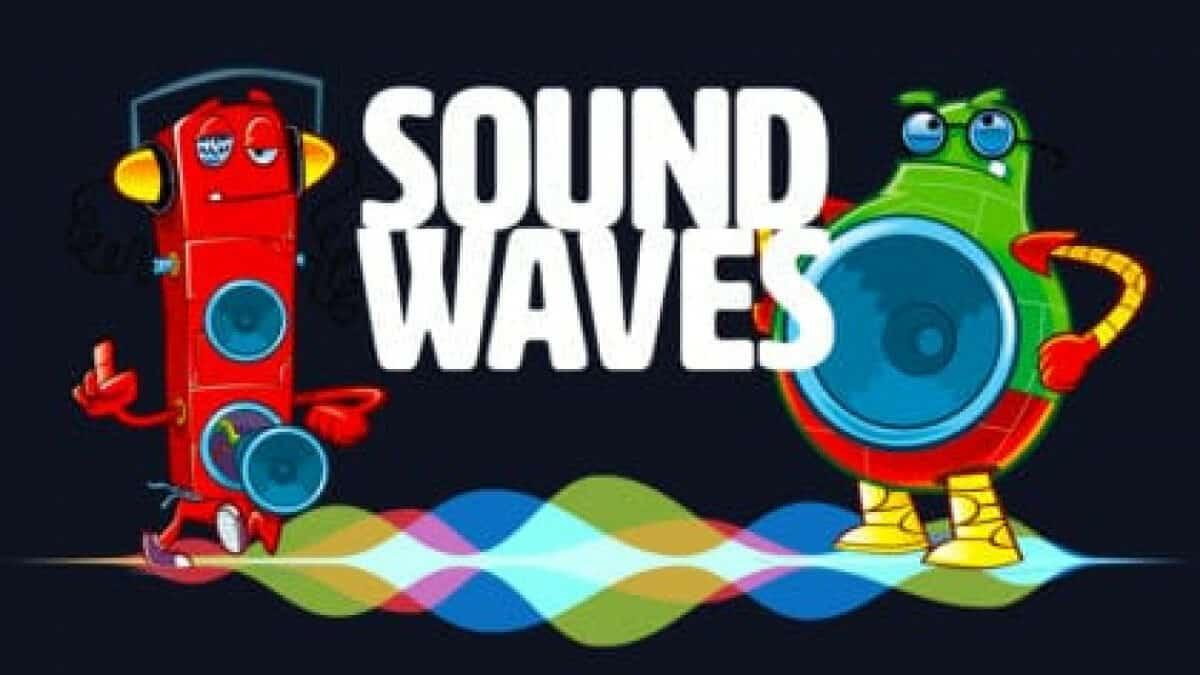What are sound waves?
When something makes a sound, like you clapping your hands, it’s because when you clapped your hands that shook the air molecules around your hands and made them vibrate (that means they shake quickly back and forth).
This vibration, in turn, shook the air molecules a little further away from your hands, and they shook the air molecules next to them, and so on, until the air molecules inside your ear were vibrating too (and inside the ears of the people sitting near you too).
Different types of sound waves
Not all sound waves are created equal.
Some sound waves are tall and thin. Others look more like hills.
The higher the pitch, the faster the molecules move and vibrate. This means they also spend a lot more energy than lower-pitched sound waves, like bass, meaning they travel less distance.
That’s why you can hear the music next door, but not your neighbours talking!

How do sound waves travel?
Sound waves can travel through solids like metal, liquids like water and gases like air. But they can’t travel through empty space which has nothing, not even air, in it. That’s why in space, there is no sound at all, whatever you might have seen in movies!
Sound waves can reflect off surfaces. We hear sound reflections as echoes. Hard smooth surfaces are really good at reflecting sounds – this is why empty rooms produce lots of echoes.
How do we hear sound waves?
We detect sounds using our ears.
Tiny parts of the inner ear vibrate and our brain interprets these signals as sound.
Remember those vibrating molecules we spoke about at the start?
The air molecules inside your ear begin to shake, they wobble tiny hairs inside your ear that are connected to nerves under your skin. If your ears are working, these nerves then send messages to your brain to tell you that you heard a noise.
You can only hear people talking to you because sound waves have travelled from their mouths to your ears.
Talking and listening means we can communicate with each other. That’s massively important!
Your mission is to complete this quiz…
Find out more about waves by clicking here
Add a commentWeek 11: Physics
This week's missions are all about physics! We'll be finding out what sound is and what have waves got to do with it?
More From Week 11: Physics






